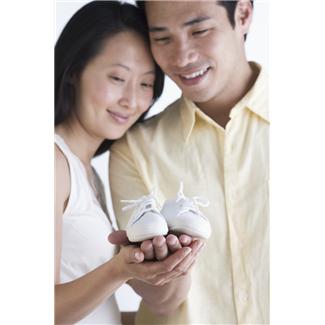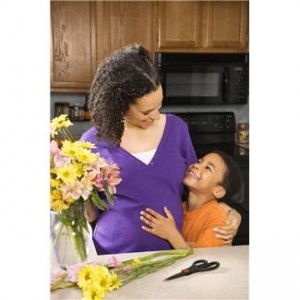Why the Couple Relationship Is So Important When You Are Parents
 What is it exactly that makes a committed relationship work, after kids come into the picture? It’s maintaining a loving and safe connection that allows new parents to weather the storms of raising kids with their relationship intact.
What is it exactly that makes a committed relationship work, after kids come into the picture? It’s maintaining a loving and safe connection that allows new parents to weather the storms of raising kids with their relationship intact.
If you want to maintain a good marriage, your relationship with your partner has to come first. Most of us have to work to earn a living, and some of us even enjoy our work. And we all have to take good care of our children. But if your partner always comes last, even a good relationship may fail, which will impact both your children and your financial future. A committed partnership takes love, commitment and hard work, and it’s a rare one that can stand many years of neglect.
Most of us want to be the best parents we can. But we don’t always remember that keeping our relationship happy is one of the most important things we can do for our children’s well-being. This means finding a way to spend time together away from the kids, as well as doing things together as a family. It also means keeping your sex life alive and kicking, whatever that takes. And it means working through your relationship difficulties and finding a way to connect and create time for your relationship despite whatever else is going on. It also requires that you accept your partner as a human being and a parent, as imperfect as they may be. Studies show that children fare much better in a family in which the parents’ relationship is solid, even if the parents do an imperfect job.
Communication is crucial. In the short run, it is always easier to bury resentments and avoid conflict. But in the long run, resentments build up and fester – killing intimacy and poisoning your sexual relationship. Learning how to communicate clearly and connect on an emotional level while remaining responsible for your own feelings and reactions can save your relationship.
For example, if your partner spends time caring for the baby and you’re annoyed that you find him sitting in front of the TV watching football, take a minute to think about how you want to respond. Angrily attacking him for not being engaged with the baby will only drive a wedge between you. On the other hand, biting your lip may be even worse, if it will lead to you feeling resentful and unloving toward your mate. If, after letting yourself cool down, you find that you are still resentful about it, one way to start a conversation is by saying something like: “I know you have had a hard day and you enjoy watching football to unwind. And your time with the baby is yours, so I don’t want to tell you how to do it. But I can’t help feeling resentful, after spending the day entertaining and caring for the baby, when I see you watching TV rather than playing with her.”
It may be that this discussion will involve some conflict, and your partner may express anger. But he also might acknowledge that he is at a loss for how to interact with the baby, or that he feels inadequate or inexperienced with parenting a baby. And you might express your concerns about exposing the baby to TV, and your desire for both of you to be good parents, while acknowledging that a football game probably won’t ruin your child for life.
After such a discussion, you might find that you don’t feel angry anymore. You may understand where your partner is coming from and recognize that the baby will survive some football-watching with Dad. Or, the discussing may spark the idea of giving Dad more time with the baby to improve his confidence. But either way, your feelings of resentment will be less if you work through the issues and understand each others’ feelings.
This is not to say that there are never times when it pays to let something go rather than discussing it with your partner. But the important question to ask yourself is: “will I truly be able to let this go?” If the answer is no, then you have to talk about it, preferably when you are both feeling calm, so you can move past the feelings of resentment and reconnect with your partner.
Remember that there is no intimate relationship that can remain loving without dealing with some conflict. Expressing feelings in a sensitive way is how you grow closer and resolve difficult situations. If you find that these discussions are unproductive, get the help of a qualified couples’ counselor sooner rather than later, so there is enough good will between the two of you to work on making the relationship better.
Often, the issues that keep coming up between you two mask fears and anxieties about the safety and security of your relationship. Reestablishing that bond can make all the difference in resolving the little conflicts that arise and maintaining a strong, healthy bond with your mate.
 There is no guilt quite like the guilt of a parent. We feel so uniquely responsible for the care of our children. Every lapse in our parenting weighs on us.
There is no guilt quite like the guilt of a parent. We feel so uniquely responsible for the care of our children. Every lapse in our parenting weighs on us. Being a new mother should be a joyous time in your life. But what if you’re not feeling like yourself after having a baby? About 10-15% or of new moms experience postpartum depression, which can begin any time during the first year after childbirth. Depression is a treatable illness that causes feelings of sadness, indifference, and/or anxiety.
Being a new mother should be a joyous time in your life. But what if you’re not feeling like yourself after having a baby? About 10-15% or of new moms experience postpartum depression, which can begin any time during the first year after childbirth. Depression is a treatable illness that causes feelings of sadness, indifference, and/or anxiety. People have a physiological reaction to the sound of a baby crying. Our hearts pound, our blood pressure rises, and we start to sweat. This reaction causes most of us to try to stop the crying, regardless of how tired, irritable, or hungry we might be ourselves. And that’s a good thing. It’s how our babies learn to trust that their needs will be met and that the world is a safe place.
People have a physiological reaction to the sound of a baby crying. Our hearts pound, our blood pressure rises, and we start to sweat. This reaction causes most of us to try to stop the crying, regardless of how tired, irritable, or hungry we might be ourselves. And that’s a good thing. It’s how our babies learn to trust that their needs will be met and that the world is a safe place. If you’re like me, I really thought that, despite my decision to breastfeed, my husband was so gung ho about being a Dad that we would share the parenting responsibilities pretty equally once our first child was born. I was in for a rude awakening. Breastfeeding meant that much of the time I was literally attached to my new baby, and when I was not, I had an easier time calming him than my husband did. And even when I didn’t, I couldn’t stand to have my husband trying to comfort our fussy baby without stepping in and trying to help. Whether due to biology or psychology, I was so attached to my new baby that I couldn’t tear myself away long enough to really get a break. As a result, I became more comfortable in the baby care role, and he became less.
If you’re like me, I really thought that, despite my decision to breastfeed, my husband was so gung ho about being a Dad that we would share the parenting responsibilities pretty equally once our first child was born. I was in for a rude awakening. Breastfeeding meant that much of the time I was literally attached to my new baby, and when I was not, I had an easier time calming him than my husband did. And even when I didn’t, I couldn’t stand to have my husband trying to comfort our fussy baby without stepping in and trying to help. Whether due to biology or psychology, I was so attached to my new baby that I couldn’t tear myself away long enough to really get a break. As a result, I became more comfortable in the baby care role, and he became less.